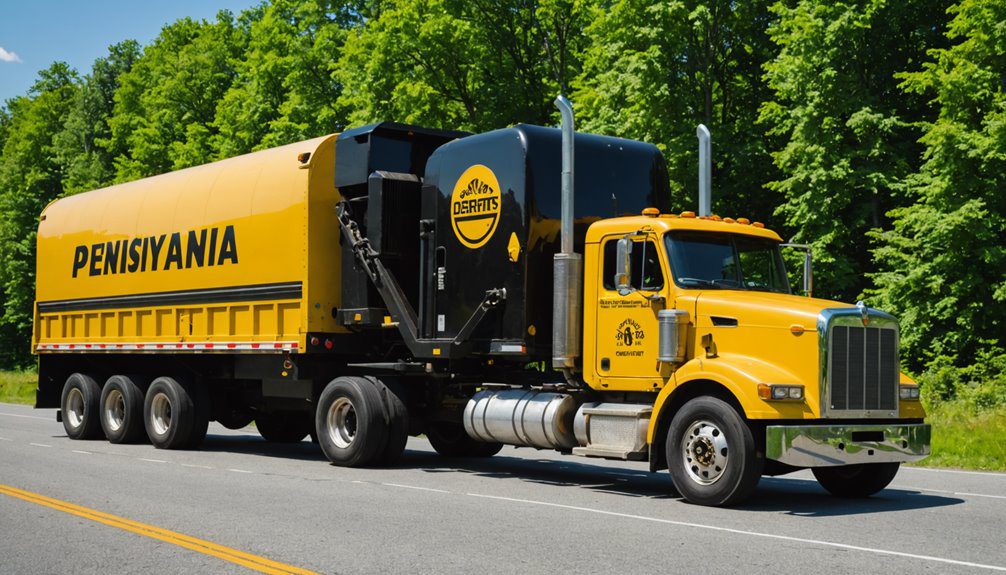When you're navigating the complexities of transporting oversized loads in Pennsylvania, understanding the Overweight Oversize Hauling Permit Bond is essential. This bond isn't just a formality; it's a financial safety net that ensures you comply with state regulations and protect both your business and public resources. You might be wondering about the specific requirements and the application process, which can seem daunting. However, knowing how to secure this bond can make all the difference in your operations and reputation. What steps should you take next to ensure compliance and efficiency?
Definition of the Permit Bond
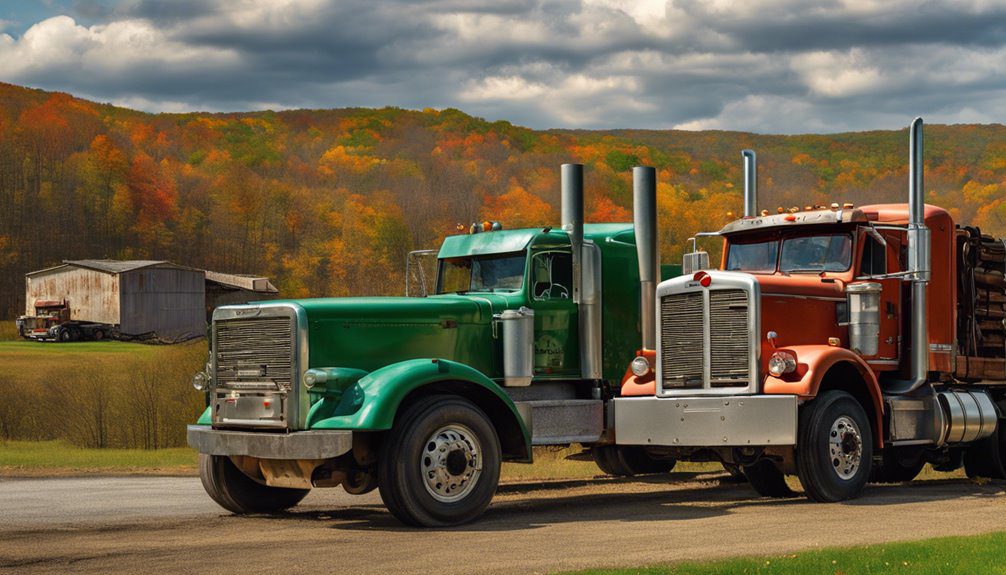
When you apply for a Pennsylvania overweight oversize hauling permit bond, you're essentially securing a financial guarantee that ensures compliance with state regulations. This bond acts as a safeguard for both you and the state, confirming that you'll adhere to all applicable laws during your hauling activities.
It's a crucial part of the permitting process for vehicles that exceed standard size and weight limits.
Essentially, the permit bond serves as a promise to the state that you won't engage in any unlawful practices while transporting oversized loads. If you violate any regulations—such as damaging infrastructure or failing to pay fines—the bond can cover any financial repercussions.
This means that you're not just protecting yourself; you're also ensuring that state resources aren't misused.
Obtaining this bond requires you to pay a premium, which varies based on factors like your credit score and the size of the load. Additionally, the bond is often necessary for regulatory compliance with state and federal requirements.
Once acquired, the bond is typically valid for a set period, ensuring ongoing compliance.
Importance of the Bond
Understanding the importance of the Pennsylvania overweight oversize hauling permit bond is crucial for anyone involved in transporting large loads. This bond acts as a financial safety net, protecting the state and the public from potential damages that could occur during your transport. If you fail to comply with regulations or cause damage to public property, the bond ensures that funds are available for compensation, reducing the burden on taxpayers.
Moreover, having this bond demonstrates your commitment to responsible hauling practices. It shows regulatory authorities that you take your responsibilities seriously, which can enhance your reputation within the industry. When you have a bond in place, it can also streamline the permitting process, making it easier for you to secure the necessary permits for your loads.
Additionally, the bond can provide peace of mind. Knowing you're protected financially allows you to focus on your work without the constant worry of unforeseen liabilities. Furthermore, securing the bond can enhance your business's credibility and professionalism, giving you a competitive edge in the hauling industry.
Ultimately, the Pennsylvania overweight oversize hauling permit bond isn't just a requirement—it's a vital part of running a safe and reliable hauling operation. Prioritizing this bond can save you time, money, and headaches down the road.
Eligibility Requirements
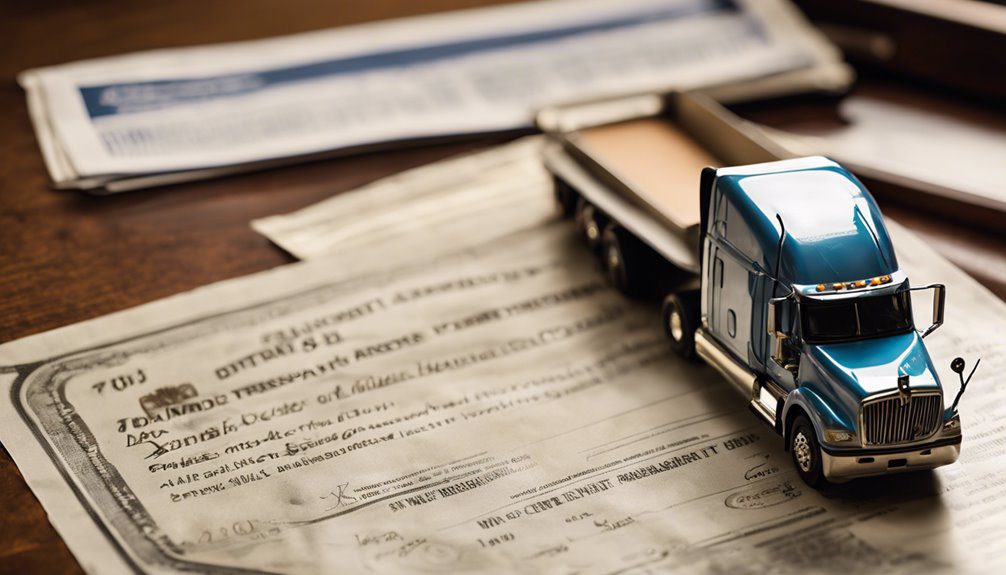
To qualify for the Pennsylvania overweight oversize hauling permit bond, you'll need to meet specific eligibility requirements set by the state.
First, you must be a legal entity, which means you're either an individual, partnership, corporation, or LLC. Make sure you've registered your business with the appropriate state authorities.
Next, you'll need to have a valid Pennsylvania Department of Transportation (PennDOT) number. This number shows that you're recognized by the state as a legitimate hauling operation.
Additionally, you'll need to comply with all local, state, and federal regulations related to overweight and oversize loads.
Your driving record also plays a crucial role. Ensure that your drivers hold valid commercial driver's licenses (CDLs) and have clean driving records free of serious violations.
It's essential to demonstrate financial responsibility, which means having adequate insurance coverage for your operations.
Application Process
Once you've confirmed your eligibility, the next step is to navigate the application process for the Pennsylvania overweight oversize hauling permit bond.
To get started, gather all necessary documentation, including your business information, vehicle details, and any relevant permits. This information will help streamline your application.
Next, visit the Pennsylvania Department of Transportation (PennDOT) website or contact their office to obtain the official application form. Fill it out carefully, ensuring all sections are completed accurately. Double-check your entries to avoid any errors that could delay the process.
Once your application is complete, submit it along with any required supporting documents. Depending on your situation, you may also need to provide proof of insurance or other endorsements.
After submitting your application, monitor its status by contacting PennDOT or checking their online portal. Keep in mind that processing times can vary, so be patient.
If PennDOT requires additional information or clarification, respond promptly to avoid further delays. By following these steps, you'll be well on your way to securing your Pennsylvania overweight oversize hauling permit bond.
Cost of the Bond
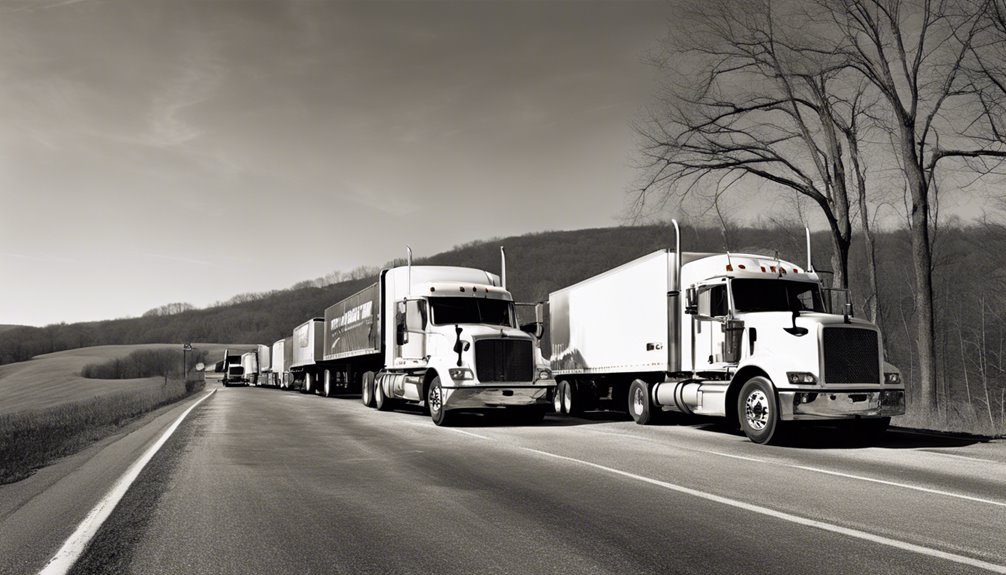
Calculating the cost of the Pennsylvania overweight oversize hauling permit bond involves several factors that can impact your budget.
First, the bond amount required will vary based on the size and weight of the load you're hauling. Typically, this amount can range from ,000 to $100,000, depending on the specifics of your operation.
Next, the premium you pay for the bond is influenced by your credit score and financial history. A higher credit score usually means a lower premium, while a lower score can increase your costs. On average, you might pay anywhere from 1% to 10% of the bond amount annually.
Additionally, the bonding company may consider the type of cargo you're transporting and your experience in the industry. This can also affect your overall rates.
It's wise to compare quotes from multiple bonding companies to find the best deal. Local government requirements may also dictate specific bond types necessary for your operation.
Remember, investing in your bond is crucial for compliance and safeguarding your business, so make sure you factor this into your operating expenses.
Duration and Renewal
When it comes to the duration and renewal of your Pennsylvania overweight oversize hauling permit bond, it's essential to understand the typical timeframe involved. Generally, your bond is valid for a specific period, often a year. You'll need to keep track of the expiration date to ensure continuous coverage.
As the expiration date approaches, it's crucial to begin the renewal process. Most bonding companies will notify you when it's time to renew, but it's wise to take the initiative. You can usually complete the renewal process with minimal hassle, often by providing updated information or paying the renewal premium.
Remember, if you let your bond lapse, it could lead to delays in getting your permits, and potentially legal complications. So, stay proactive in managing your bond status.
In some cases, you may also have the option to set up an automatic renewal, which can simplify the process. Ensure you read the terms carefully to avoid any surprises.
Keeping your bond current not only protects you and your business but also ensures compliance with state regulations, enabling you to haul oversized loads without interruption.
Legal Obligations
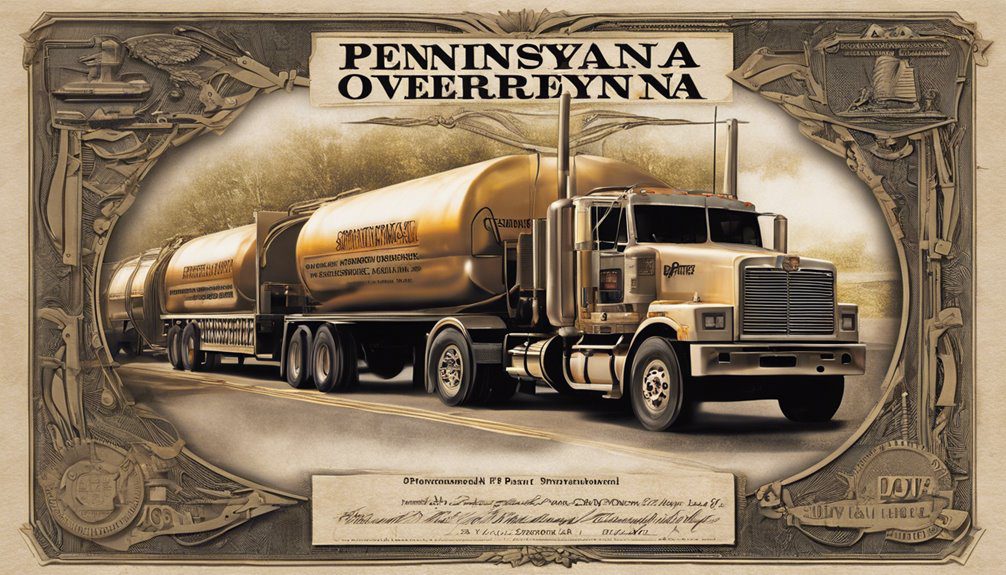
What legal obligations do you need to be aware of when hauling oversized loads in Pennsylvania?
First, you must obtain the necessary permits before you start your journey. Pennsylvania requires you to apply for an overweight or oversize permit through the Department of Transportation (PennDOT). Make sure to include all pertinent details, such as the dimensions and weight of your load.
You're also responsible for ensuring your vehicle meets the state's safety standards. This includes having valid registration and insurance coverage.
Additionally, you should familiarize yourself with the specific routes allowed for oversized loads, as some roads may have restrictions or require special accommodations.
Another key obligation is to notify local authorities, such as police or traffic departments, if your load is particularly large or if you plan to travel during peak hours. This ensures public safety and smooth traffic flow.
Lastly, always stay updated on any changes to regulations or permit requirements. Regulations can vary by municipality, so knowing local laws can help you avoid potential issues.
Consequences of Non-Compliance
Frequently ignoring the legal requirements for hauling oversized loads in Pennsylvania can lead to serious consequences.
You risk facing hefty fines and penalties that can significantly impact your business's bottom line. Law enforcement officials often monitor compliance, and being pulled over for an inspection could result in immediate citations.
In addition to financial penalties, you may also encounter operational setbacks. Non-compliance can lead to the impoundment of your vehicle, delaying your delivery schedule and causing potential loss of contracts.
Your reputation is at stake, too; clients prefer to work with carriers who adhere to regulations. If you repeatedly violate the rules, you could find it challenging to secure future contracts or partnerships.
Moreover, accidents involving oversized loads can lead to severe legal repercussions, including lawsuits and increased insurance premiums.
You might also face liability claims if your non-compliance contributes to a roadway incident.
Tips for Obtaining the Bond
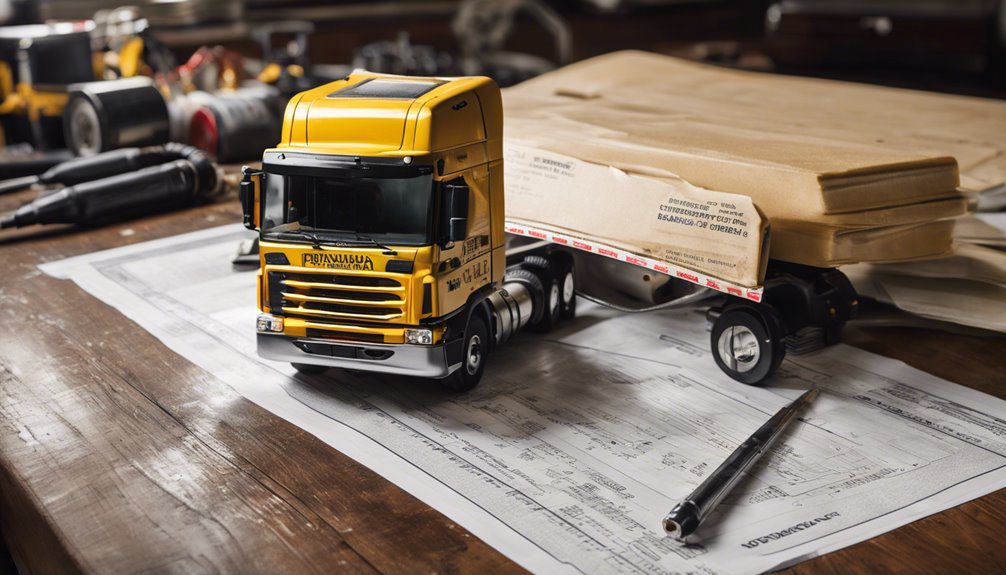
To avoid the serious repercussions of non-compliance, securing an overweight oversize hauling permit bond is a vital step for your business.
First, research the specific requirements for Pennsylvania. Each state has its own regulations, so understanding these will help you prepare.
Next, gather all necessary documentation, including your business license, insurance information, and any previous permits you've held. This paperwork will streamline the bonding process and demonstrate your compliance history.
When you're ready, shop around for bonding companies. Compare rates and terms, as they can vary significantly. Look for a bonding provider with a solid reputation and experience in overweight oversize permits.
Don't hesitate to ask questions. Clarifying any uncertainties before committing can save you headaches later.
Once you've chosen a bonding company, be proactive in your communication. Respond promptly to requests for additional information to expedite the approval process.
Additional Resources and Support
Finding additional resources and support can make a significant difference in your journey to secure an overweight oversize hauling permit bond in Pennsylvania.
Start by checking with the Pennsylvania Department of Transportation (PennDOT) for detailed guidelines and requirements. They provide up-to-date information and can answer your specific questions.
Consider joining industry associations, such as the Pennsylvania Motor Truck Association. These organizations often offer valuable resources, networking opportunities, and insights from experienced professionals who've navigated the same process.
You can also connect with local trucking companies; they may share tips or even recommend reliable bonding agents.
Online forums and social media groups dedicated to trucking can be another great resource. You'll find discussions with real-world advice from others who've recently obtained their permits.
Additionally, don't hesitate to reach out to bonding companies directly. They typically have experts who can guide you through the process and help you understand the necessary paperwork and requirements.
Conclusion
In summary, securing the Pennsylvania overweight oversize hauling permit bond is essential for your business's compliance and reputation. It not only protects state resources but also helps you avoid costly fines and damages while ensuring public safety. By understanding the eligibility requirements and application process, you can streamline your operations and enhance your commitment to safe hauling. Don't overlook this vital step; obtaining the bond is a smart move for your trucking business's success.

